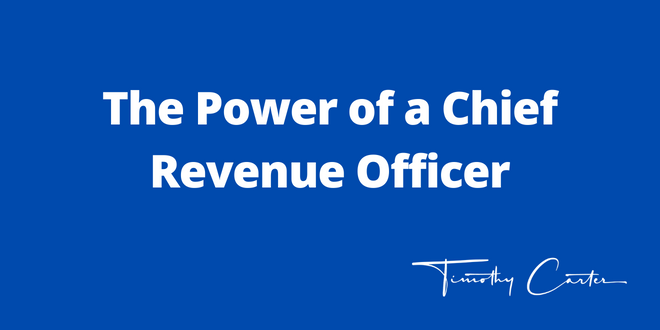
Supercharge Your Business Growth with These Proven Strategies
September 26, 2023
5 Reasons Why Every Business Needs A Coach
November 8, 2023In today’s fast-paced and ever-changing business landscape, organizations often turn to business consultants for expert guidance and support. These consultants bring a wealth of knowledge and experience to the table, helping businesses overcome challenges, identify opportunities, and achieve their goals. While qualifications and technical expertise are undeniably essential, there’s another aspect that separates exceptional consultants from the rest – their soft skills.
Understanding the Role of a Business Consultant
Before delving into the importance of soft skills, it’s crucial to understand the role of a business consultant. A business consultant is a professional who provides specialized advice and assistance to businesses seeking to improve their performance, solve problems, or implement new strategies. Their expertise can range from finance and marketing to organizational development and process improvement. These consultants work closely with clients to understand their unique needs and challenges, devising tailor-made solutions that drive positive outcomes.
The Impact of Soft Skills on Consulting Success
While technical expertise lays the foundation for a business consultant’s competence, soft skills play a pivotal role in determining their overall success. Soft skills encompass a range of interpersonal and communication abilities that allow consultants to collaborate effectively with clients and teams alike. These skills not only bridge the gap between knowledge and implementation but also contribute to building long-lasting relationships with clients.
Consider a situation where a consultant possesses remarkable knowledge but lacks effective communication skills. They might struggle to convey complex ideas to clients, leading to misunderstandings and project delays. On the other hand, a consultant with exceptional communication skills can present their ideas in a clear and concise manner, gaining the trust and confidence of their clients.
Key Soft Skills to Look for in a Business Consultant
- Effective Communication Skills
- Active Listening and Empathy: Understanding clients’ needs on a deeper level by listening actively and showing empathy.
- Concise and Clear Communication: Delivering information in a straightforward and understandable manner.
- Persuasion and Negotiation Abilities: Convincing clients to embrace new strategies and negotiating win-win solutions.
- Problem-Solving and Critical Thinking
- Analyzing Complex Issues: Breaking down intricate problems into manageable components for effective solutions.
- Innovative Problem-Solving Approaches: Thinking outside the box to propose creative and unique solutions.
- Decision-Making Under Pressure: Making sound decisions even in high-stress situations.
- Adaptability and Flexibility
- Dealing with Uncertainty and Change: Thriving in dynamic environments and embracing change positively.
- Being Open to New Ideas and Strategies: Willingness to explore innovative approaches and adapt to emerging trends.
- Adapting to Diverse Client Environments: Tailoring approaches to suit the unique characteristics of each client.
- Emotional Intelligence and Empathy
- Understanding Clients’ Emotions and Needs: Connecting with clients on an emotional level to better address their concerns.
- Building Strong Client Relationships: Establishing rapport and trust with clients to foster long-term partnerships.
- Managing Conflicts and Difficult Situations: Handling challenging scenarios with tact and sensitivity.
- Leadership and Influencing Skills
- Guiding Clients Towards Success: Inspiring and leading clients through complex projects and transformations.
- Motivating and Inspiring Teams: Encouraging team members to perform at their best and achieve shared goals.
- Creating a Vision for Positive Change: Articulating a compelling vision and strategy for client success.
- Time Management and Organization
- Efficiently Managing Resources and Tasks: Optimizing resources to meet project deadlines and budget constraints.
- Setting and Meeting Project Timelines: Delivering projects on time and within agreed-upon schedules.
- Handling Multiple Projects Simultaneously: Juggling multiple projects without compromising quality.
- Cultural Awareness and Sensitivity
- Working with Diverse Teams and Clients: Navigating cultural differences to foster inclusivity and collaboration.
- Respecting Different Cultural Norms: Adhering to cultural sensitivities to avoid misunderstandings in consulting.
Assessing Soft Skills During the Consultant Selection Process
Identifying and evaluating soft skills is a crucial aspect of the consultant selection process. While interviews and resumes offer insights into a candidate’s technical expertise, they might not fully reveal their soft skills. To assess soft skills effectively, consider the following approaches:
- Interview Techniques: Design interview questions that delve into a candidate’s experiences, problem-solving methods, and communication style.
- Role-Playing Scenarios: Engage candidates in simulated consulting situations to observe how they handle various challenges.
- Reference Checks and Testimonials: Reach out to previous clients to gather feedback on the candidate’s soft skills and their overall consulting experience.
The Benefits of Hiring Consultants with Strong Soft Skills
Hiring consultants with strong soft skills yields a myriad of benefits for both the consultant and the client.
- Enhanced Client Satisfaction and Loyalty: Consultants who prioritize soft skills can better understand and meet client expectations, leading to higher satisfaction levels and increased client loyalty.
- Improved Project Outcomes and Results: Effective communication and collaboration enhance project outcomes, ensuring that solutions are well-implemented and yield positive results.
- Building Long-Term Partnerships and Referrals: Consultants with excellent soft skills are more likely to build lasting partnerships with clients, leading to repeat business and valuable referrals.
Overcoming Challenges Related to Soft Skills Development
While some individuals naturally possess strong soft skills, others might need guidance and development. Consulting firms can take proactive steps to overcome challenges related to soft skills:
- Identifying Gaps in Soft Skills and Addressing Them: Conduct assessments to identify areas where consultants might need improvement in their soft skills.
- Training and Development Opportunities: Offer regular training sessions and workshops to enhance consultants’ soft skills and provide opportunities for growth.
- Nurturing a Culture that Values Soft Skills: Cultivate an organizational culture that recognizes and celebrates the importance of soft skills in the consulting profession.
Frequently Asked Questions (FAQs)
- What are soft skills, and why are they essential for business consultants?
- Soft skills refer to interpersonal and communication abilities that complement technical expertise, enabling consultants to work effectively with clients and teams.
- Can soft skills be learned and improved over time?
- Yes, soft skills can be developed and refined through training, practice, and self-awareness.
- How can I identify a consultant’s soft skills during the hiring process?
- Use behavioral interview questions and role-playing scenarios to assess a candidate’s soft skills.
- What soft skills are most valued in the consulting industry?
- Effective communication, problem-solving, adaptability, and emotional intelligence are highly valued in consultants.
- How do soft skills contribute to a consultant’s ability to handle client relationships?
- Soft skills enable consultants to build trust, understand clients’ needs, and navigate conflicts, fostering stronger client relationships.
- Can technical expertise alone make a consultant successful?
- While technical expertise is essential, strong soft skills significantly contribute to a consultant’s overall success and impact.
- How do soft skills impact the effectiveness of problem-solving in consulting projects?
- Soft skills like critical thinking and empathy allow consultants to identify root causes and develop innovative solutions.
- Are there any industry-specific soft skills that consultants should possess?
- Some industries might require specific soft skills, such as cultural awareness for global consulting projects.
- What is the role of emotional intelligence in a consultant’s success?
- Emotional intelligence helps consultants understand and manage their emotions and those of their clients, leading to better decision-making and relationships.
- How can consulting firms foster the development of soft skills among their consultants?
- Providing training, mentoring, and a supportive work environment can encourage the growth of soft skills within consulting firms.
Conclusion
In the competitive world of business consulting, the impact of soft skills should never be underestimated. While qualifications and technical expertise are essential, it’s the possession and development of effective communication, problem-solving, empathy, and other soft skills that truly set outstanding consultants apart. By recognizing the significance of soft skills and prioritizing them during the consultant selection process, businesses can forge successful partnerships with consultants who not only understand their needs but also navigate complex challenges with finesse and tact. In the end, it’s the combination of qualifications and soft skills that enables consultants to lead organizations towards sustainable growth and prosperity.






